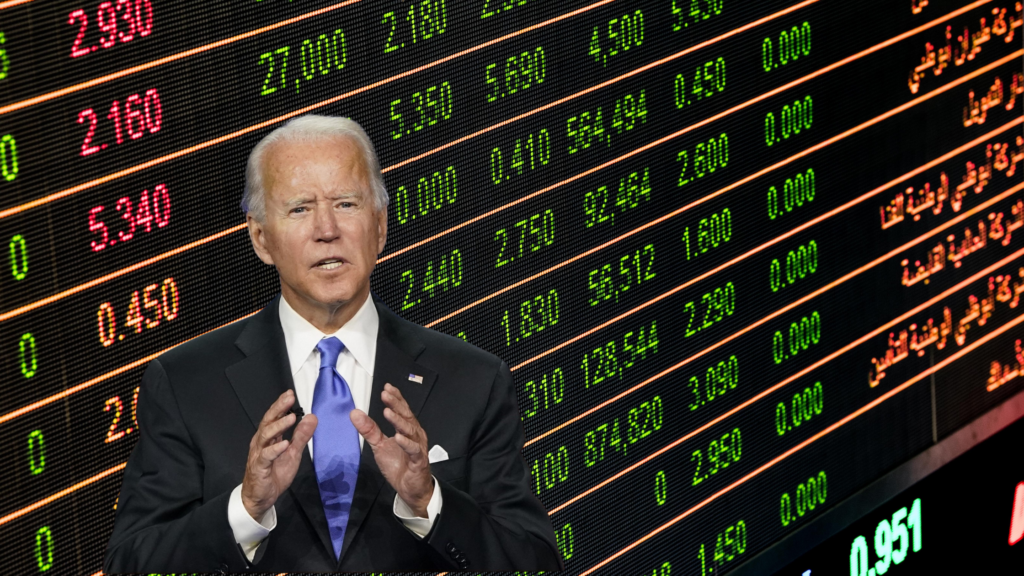President Biden is showing that he’s serious about his pledge to “Build Back Better.” His new $2.3 trillion “American Jobs Plan” offers a blueprint for both investing in the nation’s infrastructure and rebuilding U.S. manufacturing. Now, it’s Congress’s turn to weigh in on the specifics of the president’s proposal—and how to pay for it.
If Congress and the president want to find ways to fund this large-scale jobs plan—and also start rebuilding domestic manufacturing—there’s a key step they should take. They should act now to address America’s overvalued U.S. dollar. Doing so could not only make U.S. manufacturing competitive again, but could also help to pay for the president’s initiative. And the good news is that properly fixing the dollar’s value could actually help to pay for the large price tag of the new jobs plan.
Since 2014, the dollar has been progressively rising in value due to a continuing influx of private foreign investment in America’s financial markets. Overseas investors keep chasing large profits on Wall Street, and their incoming capital keeps driving up demand for the dollar. The result is an overvalued dollar that makes U.S. exports more expensive for overseas consumers, and imports extra cheap in the U.S. market.
Solving this dollar challenge has been an urgent cause for America’s manufacturers in recent years. If President Biden truly wants to go big in his jobs plan, he’ll need to take up the cause as well.
Helpfully, legislation to realign the dollar has already been drafted. Last year, Senators Tammy Baldwin (D-WI) and Josh Hawley (R-MO) introduced a bipartisan bill that would impose a “Market Access Charge” (MAC) on foreign purchases of U.S. stocks, bonds, and other assets. Doing so would address the glut of foreign investment that keeps driving up the dollar.
Mr. Biden should work with Congress to include a MAC in his new infrastructure package. The Coalition for a Prosperous America (CPA) has already studied the MAC charge and found that a 5 percent fee on incoming foreign capital could lower the dollar’s exchange rate by a much-needed 27 percent. Doing so would offer tremendous benefits for U.S. manufacturers while also generating more than $300 billion a year in additional revenue for the U.S. Treasury. That amount is more than the total revenue from annual corporate income taxes, but none of the tax burden would fall on America’s taxpayers.
Getting U.S. manufacturing back on its feet by fixing the overvalued dollar could also solve America’s large and growing trade deficit. CPA estimates that a MAC would gradually eliminate the U.S. trade deficit, creating up to 4.6 million jobs, particularly in manufacturing.
Helpfully, Mr. Biden’s jobs plan prioritizes the use of American-made materials and domestic manufacturers for infrastructure work. However, these companies will need more than just federal contracts. To truly strengthen America’s wider supply chains, the president will need to get at the root cause of America’s current trade deficits—the dollar’s current overvaluation—which is making it harder for domestic producers to compete with China and other nations.
It’s ironic that the iconic U.S. dollar is now working against America’s manufacturers. Implementing a small charge on excessive foreign capital inflows would finally end this destructive trend. Wall Street financiers would likely be opposed, since they benefit in the short-term when foreign investors purchase paper assets from them. But the goal must be to restore the real economy outside Wall Street. And that means reestablishing the bedrock strength of American manufacturing.
The Biden administration is right to rebuild manufacturing supply chains and to invest in the nation’s infrastructure. Fixing an overvalued U.S. dollar can fully pay for this historic investment and also reestablish America’s broad industrial strength.
Read the original article here













